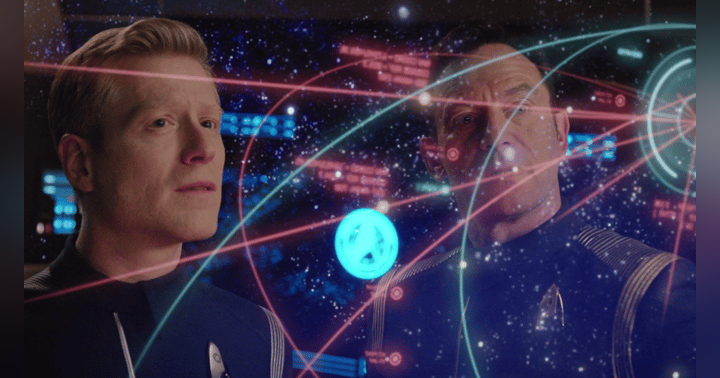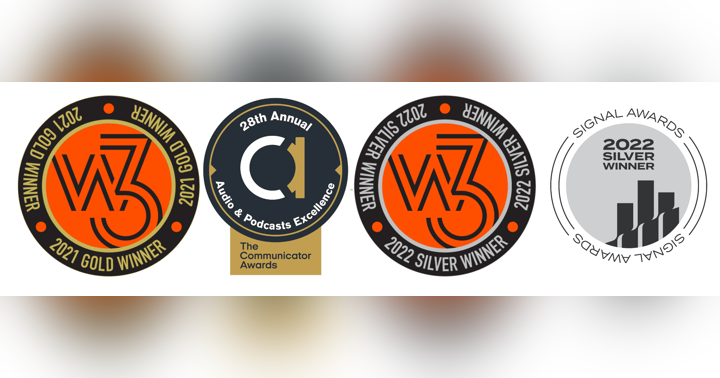Taking it Personally

Star Trek The Next Generation Too Short a Season is a sad excuse for an episode with an even sadder life story to tell. The flimsy script revolves around Mark Jameson, an admiral at the end of his career who has been explicitly requested by Karnas for a hostage negotiation on his planet, Mordan IV. Long story short, many years ago Jameson successfully negotiated a hostage situation on Mordan IV. Or so we thought. After the negotiations, there was a 40-year civil war. And no, those two things are not unrelated. It turns out that Jameson gave Karnas weapons in exchange for the hostages. But his conscience got the best of him, so he gave the rivals weapons as well. All this time he kept the secret that HE is responsible for the 40 years of civil war! And his return to Mordan IV, not even self-initiated, is a sad attempt to make it right.
This story screams two words to me: personal accountability. Personal accountability is when you take ownership of a situation you’re involved in. If you are a human, then you have or will make mistakes in your career. Maybe you said the wrong thing, blew off an assignment, skipped a meeting, hired the wrong person for the wrong reason, fired someone inappropriately, lied about work on a project, inflated a cost, or fudged a budget report. Mistakes will happen. And the dirty secret not many people will tell you is that some of those mistakes are intentional.
The thing about mistakes, especially on work that matters, is that someone will eventually know about them. They never stay hidden. The question that has to be answered is, what will you do when you get caught in a mistake?
While some mistakes are intentional, most of them are not. In fact, I’d say the vast majority are honest mistakes. Let’s say you recently closed a large and exciting deal with a customer that a partner brought to you. Those are the best, right? Everyone wins when you work with your partners. A few months later, the customer asks about some other services. Normally, since a partner brought them to you, you would engage the partner and work with the customer together. It’s that partnership that makes deals like these work. But you don’t engage the partner. You just take care of the customer. In the process, you end up moving some items from the first deal onto your paper as part of the refresh. Let’s assume this was a mistake on your part. You were in a hurry and excited to work with a big customer. Overlooking the partner agreement that a lot of people worked on was just an accident.
What would likely happen, for a little while, is nothing. Until the partner checks in with the customer and they talk about the great deal they just completed with you. Uh oh. In the blink of an eye, you have VPs, SVPs, and even a C-level executive involved. So, what will you do? Our first instinct is likely to lie, cover it up, or blame someone else. Jameson would have tried to bury it! Ignoring the mistake leads to a valuable relationship falling apart and your company being at risk of a bad reputation.
The other option is to own it. Owning it means suffering the consequences of your actions. But you know what else it means? Moving the focus from what went wrong to what can be done to make it right. This is a huge distinction! When people look for what went wrong they’re looking backward and trying to make sense of what has already happened. While there is value in looking back in terms of an after-action report or review, looking back in the moment of crisis does not create anything good. When people focus on making it right, they’re looking forward. In our example, it’s an opportunity to strengthen your relationship with your partner. You can demonstrate integrity, honesty, and accountability which build trust. You inadvertently violated their trust, but from that, you can actually build more trust. That’s a pretty incredible result! And the key is taking personal accountability.
Ideally, Jameson would not have supplied weapons to the factions on Mordan IV, but he did. Had he taken personal accountability by telling Starfleet what happened, they could have intervened to resolve the situation or at least stave off the never-ending civil war. Instead, he never told anyone, and millions upon millions died. Jameson himself died carrying the guilt of his choices.
When we are accountable for our actions and our behaviors, we can make things better. When we hide them or lie, things just get exponentially worse. Here are a few tips on how you can move toward personal accountability at work:
- Understand your role. Be very clear on what your job description is and is not. This helps prevent mistakes when you show up for the things you’re responsible for and careful not to overstep in the areas you don’t belong in.
- Practice honesty. Make honesty a habit in your life. Start with the small things that are easier to be honest with. The more often you tell the truth, the easier it will become. If you show yourself to be an honest employee and coworker, your colleagues will trust you and be more likely to extend the benefit of the doubt when mistakes come.
- Know your limits. Accidental mistakes can come when we overextend or overpromise. In other words, be honest with yourself about what you can and can’t do, for a client and a colleague. This helps you avoid placing yourself in a situation where you feel the urge to lie or blame.
- Be willing to change. No one gets it right every time. Becoming someone who is able to receive feedback and incorporate it into their work is incredibly valuable. Being flexible, open, and willing to grow is a sign that you’re taking personal accountability for your work.
All of the technology and advancement of the future can’t remove the need for personal accountability. While Jameson (dismally) tried to fix the damage he had caused, I wouldn’t say he showed true personal accountability. He frantically acted out of guilt, endangering himself, his wife, and the Enterprise crew. Let’s learn from Jameson what not to do and instead, engage in the necessary work of personal accountability.


